
Shopify Plus vs Magento Enterprise (Adobe Commerce): Which Enterprise eCommerce Platform Wins in 2025?
If you’re comparing Shopify Plus vs Magento Enterprise (Adobe Commerce), you’re likely at a crossroads that could define your next stage of growth. For mid-size and large eCommerce businesses, the platform you choose affects everything, from costs and team resources to international expansion and how quickly you can respond to new opportunities.
And what’s the challenge? Both solutions offer powerful features, but they take very different approaches to customization, maintenance, and scaling.
In this guide, you’ll get:
- A clear, side-by-side comparison of Shopify Plus vs Magento Enterprise on hosting, pricing, customization, marketing, and more
- Practical insights on total cost of ownership – including licensing, development, and ongoing maintenance
- Guidance on which platform best fits your business model, team skillset, and growth plans
Let’s dive in and help you make a decision that sets your business up for long-term success.
TL;DR: Quick Summary & Key Takeaways
Choosing between Shopify Plus vs Magento Enterprise depends on your business’s priorities, resources, and growth plans. Here’s a quick snapshot to get you started:
- Shopify Plus is a fully hosted, user-friendly platform ideal for businesses that want a scalable, managed solution with predictable costs and minimal technical overhead.
- Magento Enterprise (Adobe Commerce) is best suited for brands that require deep customization, complex integrations, or advanced B2B and multi-store capabilities, provided they have the necessary technical resources or a specialized agency.
Key differences at a glance:
- Hosting: Shopify Plus is always a SaaS (fully hosted) solution. Adobe Commerce (Magento Enterprise) offers self-hosted or Adobe-managed cloud hosting, but both demand technical oversight.
- Pricing: Shopify Plus uses transparent, subscription-based pricing. Adobe Commerce involves higher up-front and ongoing costs for licensing, hosting, development, and maintenance.
- Customization: Adobe Commerce gives you deep, code-level customization. Shopify Plus balances flexibility with simplicity, mainly through apps and APIs.
- Technical requirements: Shopify Plus is accessible for non-technical teams. Adobe Commerce requires in-house developers or a specialized agency, even with cloud hosting.
- B2B and international: Both platforms support global selling and B2B, but Adobe Commerce provides more granular control for complex catalogs and advanced models.
- Marketing, SEO, integrations: Both excel, but Shopify Plus offers a more user-friendly, streamlined experience and faster time-to-market.
If you’re comparing Shopify Plus vs Magento Commerce or evaluating Shopify Plus vs Magento Enterprise vs Adobe’s broader suite of tools, the best choice depends on how much control, speed, and long-term scalability your business requires.
Now, let’s go into detail.
Shopify Plus vs Magento Enterprise: Platform Overviews
Shopify Plus is Shopify’s enterprise-grade eCommerce platform, designed for fast-growing and high-volume brands that want power without the hassle. It’s a fully hosted, cloud-based solution, meaning Shopify manages your store’s infrastructure, security, and updates, so you don’t have to.
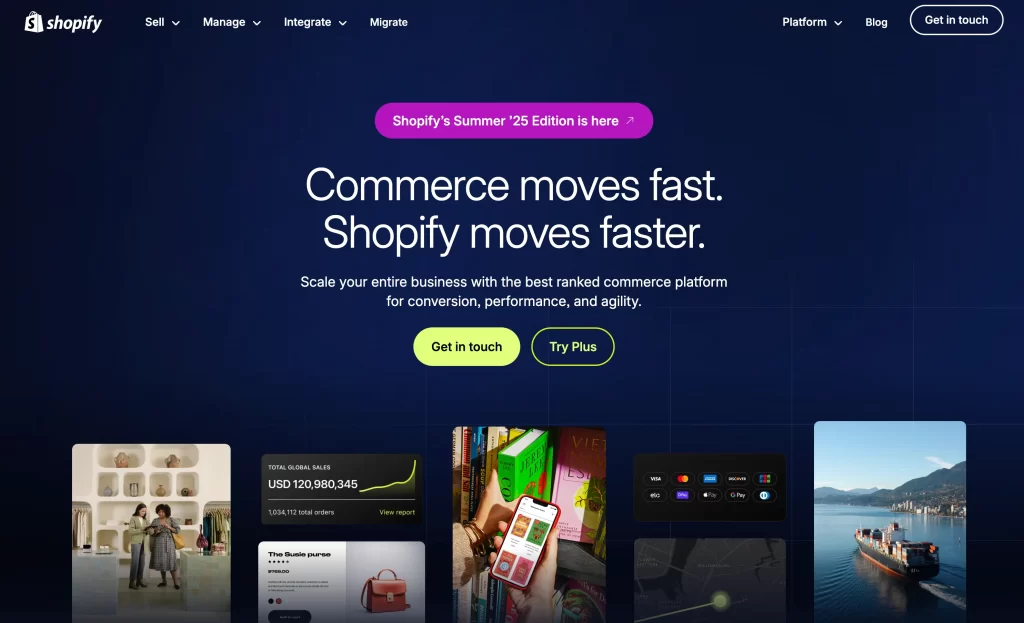
In short, Shopify Plus provides you with enterprise-level features, backed by the speed, reliability, and simplicity that enable your team to focus on selling, rather than managing servers or software.
Magento Enterprise, now called Adobe Commerce, is the paid, enterprise-level version of the Magento platform. It’s designed for businesses that need deep customization, advanced B2B capabilities, and the flexibility to tailor every aspect of their store.
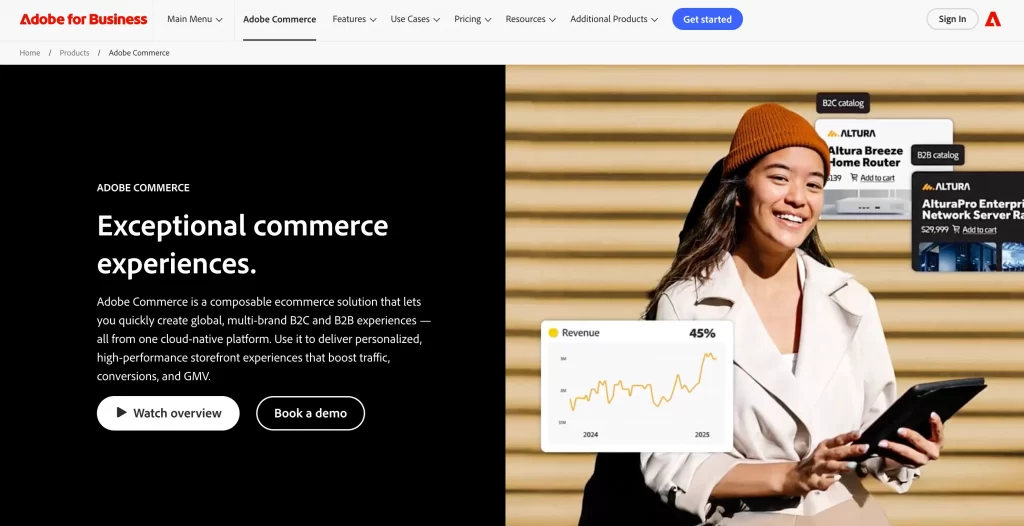
In short, Adobe Commerce offers great customization and control for enterprise businesses that are ready to invest in technical resources and want a platform that can adapt to any level of complexity.
Shopify Plus vs Magento Enterprise Core Differences
For a quick overview, the table below summarizes our key analysis for both platforms. Shopify Plus is the clear winner for ease of use, cost predictability, managed security, speed, support, and most marketing needs. Magento Enterprise wins where deep customization, advanced B2B, or complex AI/personalization is essential and you have strong technical resources.
| Category | Shopify Plus | Magento Enterprise (Adobe Commerce) | Clear Winner |
| Hosting & architecture | Fully hosted, SaaS, no server management | Self-hosted or Adobe-managed cloud; requires IT oversight and infrastructure configuration | Shopify Plus |
| Pricing & TCO | Predictable monthly fee; hosting, updates, and support included = lower TCO | Higher, variable costs for licensing (based on GMV), dev, integrations, and maintenance | Shopify Plus |
| Customization & flexibility | Flexible via apps, APIs, themes; safe guardrails | Deep, code-level customization, total control | Magento Enterprise |
| Technical requirements | Intuitive admin, minimal technical skills needed | Requires experienced devs/agency, complex setup | Shopify Plus |
| B2B & complex selling | Native multi-store, B2B, and global features, easy setup | Advanced B2B, multi-brand, multi-language, highly customizable | Magento Enterprise |
| Security & compliance | Enterprise-grade, all managed by Shopify | Merchant responsible for patches, compliance | Shopify Plus |
| Apps & integrations | Large app ecosystem, fast and easy integrations | Unlimited integration potential, often custom dev required | Shopify Plus |
| AI & personalization | Accessible, built-in tools, fast to launch | Advanced, highly customizable via Adobe Sensei | A tie |
| Marketing tools & features | Integrated, user-friendly, rapid campaign deployment | Powerful, customizable, but needs technical setup | Shopify Plus |
| Payment options & checkout experience | Fully integrated with Shopify Payments, Shop Pay, BNPL, Apple Pay; optimized for speed and conversion; minimal setup | Flexible with support for any third-party gateway; advanced payment logic possible but requires custom dev and maintenance | Shopify Plus |
| SEO & performance | Fast, reliable hosting, strong SEO out-of-the-box | Full technical SEO control, needs ongoing dev/optimization | Shopify Plus |
| Support & maintenance | 24/7 dedicated support, Shopify handles all maintenance | Enterprise support, but merchant/agency manages most maintenance | A tie |
1. Hosting and architecture
Quick verdict:
For most mid-size and large eCommerce businesses, Shopify Plus is the clear winner when it comes to hosting and architecture.
Shopify Plus is always hosted and maintained by Shopify. You don’t need to worry about server selection, uptime, updates, or scaling during high-traffic periods; Shopify handles it all behind the scenes. This “hands-off” approach means you’re never left scrambling during a flash sale or big campaign, and your IT resources stay focused on strategic projects rather than routine maintenance.

By contrast, Adobe Commerce (Magento Enterprise) offers both self-hosted and Adobe-managed cloud options. Even if you choose Adobe Commerce Cloud, you’ll need technical expertise to handle updates, performance optimization, and custom deployments.
The trade-off is flexibility: Adobe Commerce enables you to select your own infrastructure and configure every detail to meet your complex needs. However, this control comes with the burden of greater risk, higher maintenance, and a much steeper technical learning curve.
2. Pricing and total cost of ownership (TCO)
Quick verdict:
Shopify Plus delivers predictable, transparent pricing that’s easy to forecast.
| Aspect | Shopify Plus | Adobe Commerce (Magento Enterprise) |
| Pricing model | Fixed monthly fee (starts around $2,300/month); increases with sales volume | Annual licensing fee (based on GMV or order volume); higher upfront and variable over time |
| Hosting costs | Included (fully managed by Shopify) | Separate if self-hosted; bundled in Adobe Commerce Cloud but still requires management; more complex and costly |
| Development & customization | Lower (app ecosystem, no server management) | Higher, due to custom builds, Adobe modules, and technical complexity |
| Maintenance & updates | Included in subscription, handled by Shopify | Your responsibility (self-hosted) or shared (Cloud); requires dev/IT resources |
| Support | 24/7 priority support included, plus dedicated Launch/Success Manager | Varies by plan; enterprise support available but often needs coordination with an agency or internal team |
| Total cost of ownership | Predictable and easier to forecast | Higher, more variable, with hidden costs (licensing, hosting, development, integrations, support) |
When you choose Shopify Plus, you pay a straightforward monthly subscription fee, starting around $2,300 per month. This fee includes hosting, security, platform updates, and dedicated support. As your sales grow, your fee may increase, but you’ll always know what to expect, making it easier to budget and plan for scale.
When weighing Shopify Plus vs Magento Enterprise cost, you should first know that Adobe Commerce licensing is often tied to GMV, and total cost can quickly escalate due to custom development and hosting requirements. Licensing fees for the enterprise version are typically higher and are calculated based on your gross merchandise volume (GMV) or order volume.

If you opt for self-hosting, you’ll also need to pay for your own servers or cloud infrastructure, along with the associated IT staff or managed service providers. Even with Adobe Commerce Cloud, you’ll incur costs for advanced customizations, development, integrations, and ongoing updates, which can fluctuate widely depending on your business needs and ambitions.
Beyond licensing and hosting, the total cost of ownership for Adobe Commerce should factor in the need for skilled developers or an agency to handle updates, custom features, and troubleshooting. In contrast, Shopify Plus reduces your reliance on technical resources, which keeps long-term expenses and unexpected costs in check.
3. Customization and flexibility
Quick verdict:
Adobe Commerce (Magento Enterprise) wins on pure customization, while Shopify Plus offers the right amount of flexibility for most fast-growing brands without added complexity.
Shopify Plus gives you access to robust APIs, customizable checkout, and a massive library of third-party apps to extend your store’s functionality.
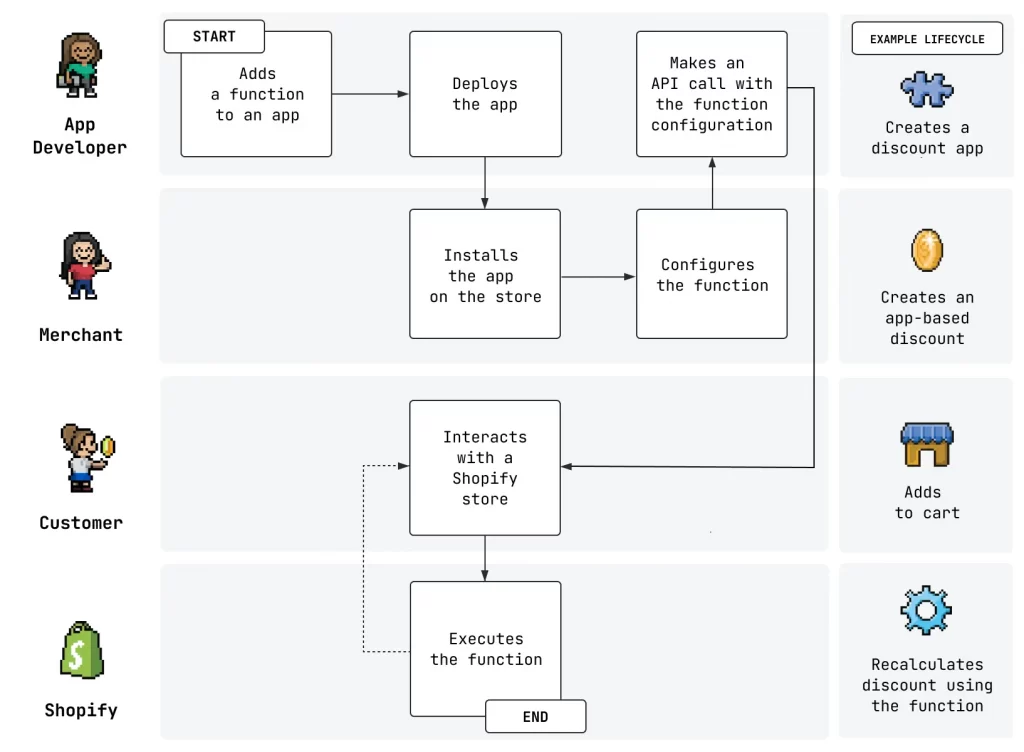
You can easily adjust storefront designs using Shopify’s Liquid templating language and create unique customer experiences with automation tools like Shopify Flow. However, some aspects, like server-side logic or deep system integrations, are intentionally restricted to keep the platform stable, secure, and easy to manage.
Adobe Commerce, meanwhile, is built for brands that want to control every detail. You (or your development team) can customize virtually anything, from catalog structure and checkout workflows to backend integrations and advanced B2B features. This open architecture is ideal for businesses with complex requirements, multi-brand setups, or unique operational processes.
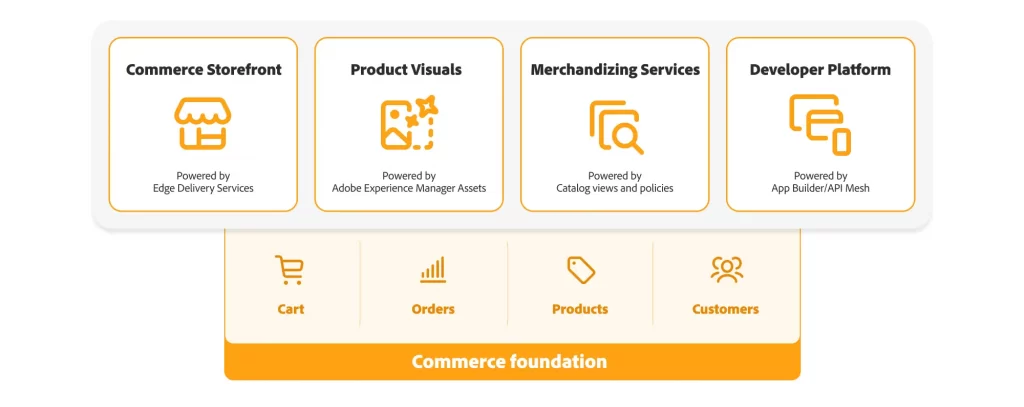
Also, Adobe’s push toward composable commerce architecture makes Adobe Commerce especially appealing for businesses seeking modular deployment of services across multiple channels or regions. And the trade-off is that customizations take more time, require experienced developers, and introduce more risk of errors or maintenance issues.
4. Technical requirements and ease of use
Quick verdict:
Shopify Plus stands out for its ease of use and low technical barrier, making it accessible for non-technical teams and rapid deployment.
Shopify Plus is designed with usability at its core. Its admin dashboard is intuitive, allowing your team to manage products, orders, content, and promotions without developer intervention. Most features are accessible through a user-friendly interface, and new sales channels or apps can be integrated in just a few clicks. Launching a new store or making major changes typically takes days or weeks, not months, helping you stay agile and focused on growth rather than spending time on technical troubleshooting.
Adobe Commerce, on the other hand, is a powerful yet complex platform. Both self-hosted and cloud versions require skilled developers to install, configure, and maintain the platform. Even day-to-day changes or updates may demand technical input, especially if your store uses custom features or integrations. While this depth allows for virtually limitless customization, it can slow down deployments and increase your reliance on IT staff or a specialized agency.
5. B2B and complex selling features
Quick verdict:
Adobe Commerce (Magento Enterprise) leads in advanced B2B features and great control for complex, multi-store, or international operations.
Shopify Plus makes it easy to expand internationally or serve B2B customers without extensive development. You can create multiple storefronts for different regions or brands, sell in multiple currencies and languages, and use built-in tools for international tax and shipping rules.
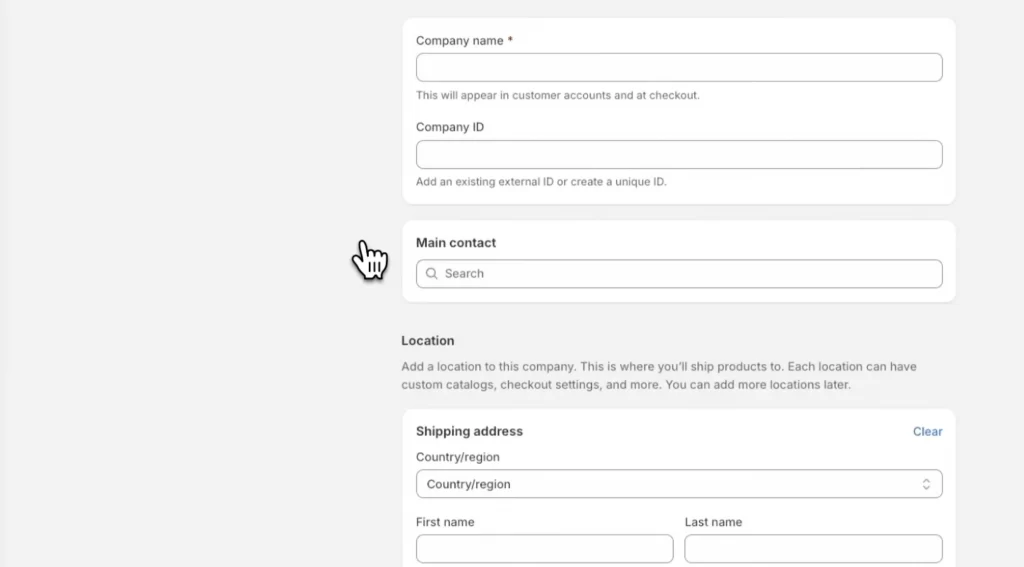
Shopify Plus now offers a native B2B suite, featuring customer-specific pricing, company profiles, and custom catalogs, which is suitable for most straightforward B2B use cases. Omnichannel selling is also strong, with seamless integrations across online, in-store, social, and marketplace channels.
Adobe Commerce, on the other hand, is built for businesses with highly complex selling needs. It offers in-depth B2B functionality, including advanced quoting, company account hierarchies, requisition lists, negotiated pricing, and purchase order workflows.
Additionally, Adobe Commerce excels for brands managing millions of SKUs, handling rapid price changes, and operating across multiple brands or channels. Its flexible catalog service and ability to support both B2C and B2B models from a single platform make it a powerhouse for complex, scaled operations.

If you manage multiple brands, operate in several countries, or require highly customized checkout and catalog experiences, Adobe Commerce gives you total flexibility to design the exact workflows you need. Internationalization features are highly powerful, letting you tailor each storefront, language, and currency setup.
6. Security and compliance
Quick verdict:
Shopify Plus is the winner for built-in security and compliance, offering enterprise-grade protection with minimal effort from your team.
Both Shopify Plus and Adobe Commerce (Magento Enterprise) are enterprise solutions that meet high security standards, including PCI DSS Level 1 compliance, regular security testing, and protection against threats like DDoS attacks. In practice, both platforms are trusted by leading brands and B2B organizations to securely handle sensitive customer data and transactions.
Where they differ is in how much of the security workload falls on your team. With Shopify Plus, security is fully managed, Shopify handles everything from SSL certificates to PCI compliance and platform updates. Your staff doesn’t need to monitor threats or schedule patches; you get enterprise-grade protection without adding to your IT to-do list.
Adobe Commerce, on the other hand, provides powerful security features but expects your team or agency to be hands-on. As a PCI Level 1 Solution Provider, Adobe Commerce includes regular penetration testing, AI-powered web application firewalls, DDoS protection, and a security scan tool for proactive risk monitoring.
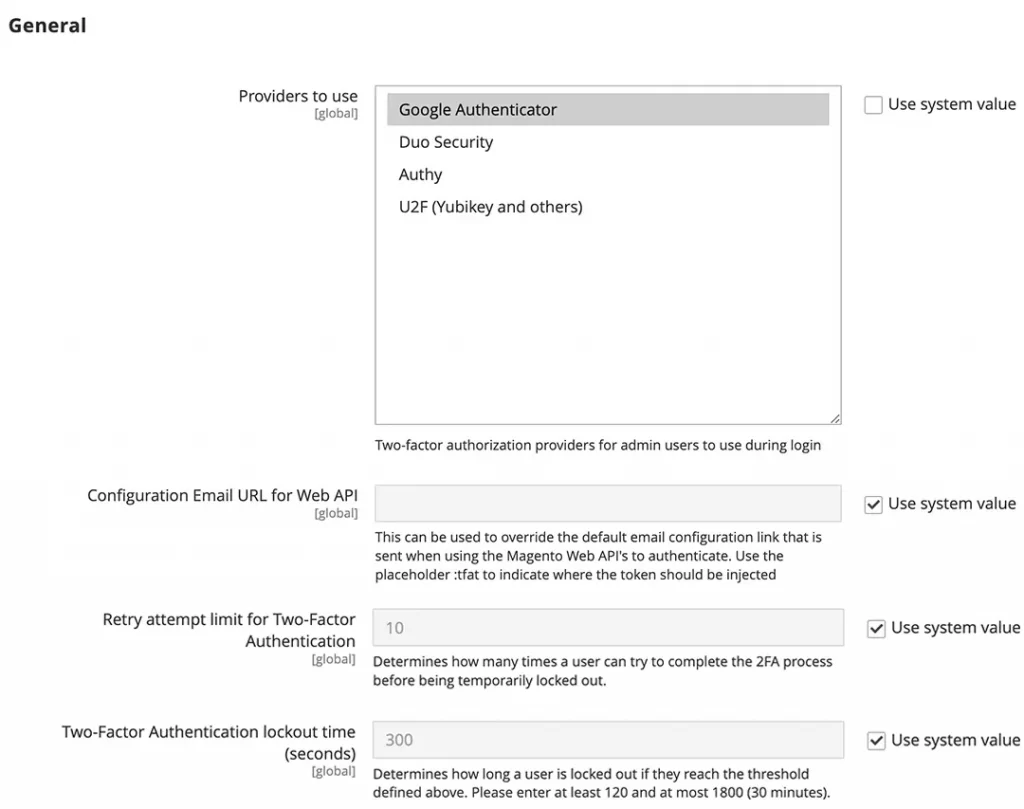
There’s also HIPAA-ready cloud hosting for businesses that handle sensitive health data. However, configuring and maintaining these defenses requires technical expertise and ongoing attention.
7. Apps and integrations
Quick verdict:
Shopify Plus wins for ease and speed of integration.
Shopify Plus comes with access to the Shopify App Store, where you’ll find thousands of qualified apps covering everything from marketing automation to shipping, accounting, loyalty programs, and more.
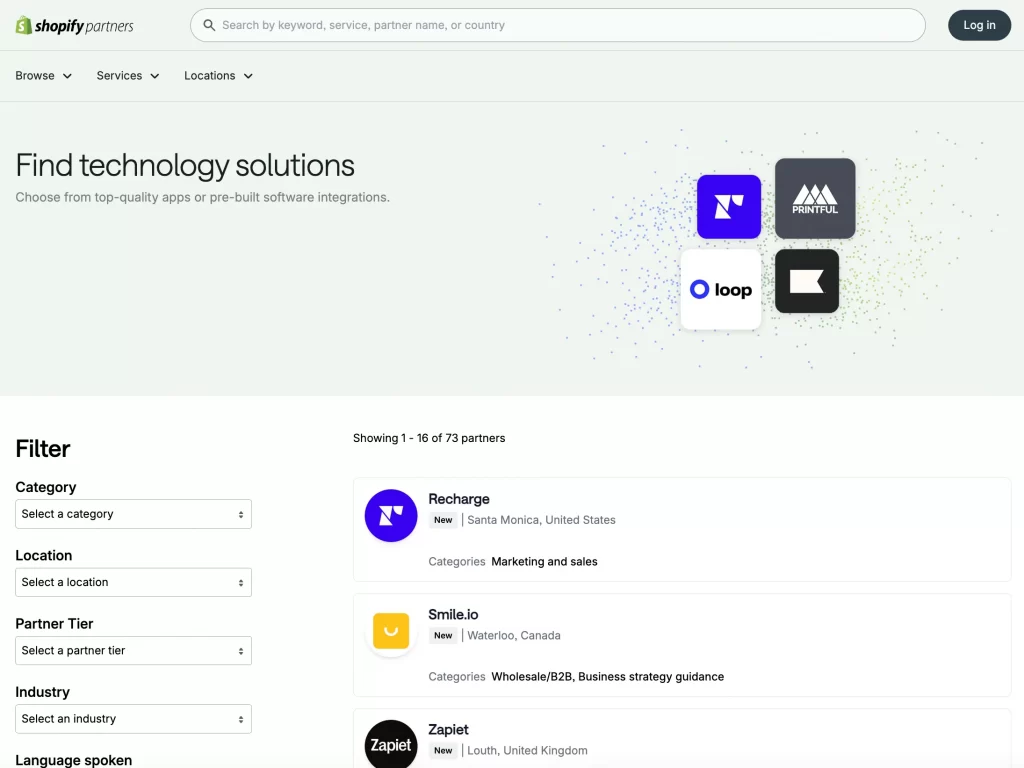
For more advanced needs, Shopify Plus offers powerful APIs and webhooks, enabling experienced partners to build custom integrations with ERPs, CRMs, and other enterprise tools.
Adobe Commerce (the paid version, formerly Magento Enterprise) is built on the Magento Open Source core; however, its additional enterprise features, proprietary modules, and official integrations are only available to paying customers under a commercial license. Although you have source code access, it’s governed by a commercial agreement, not an open-source license. This means you can build custom integrations and modify much of the platform, but you’re working within the boundaries of a licensed, supported enterprise product.
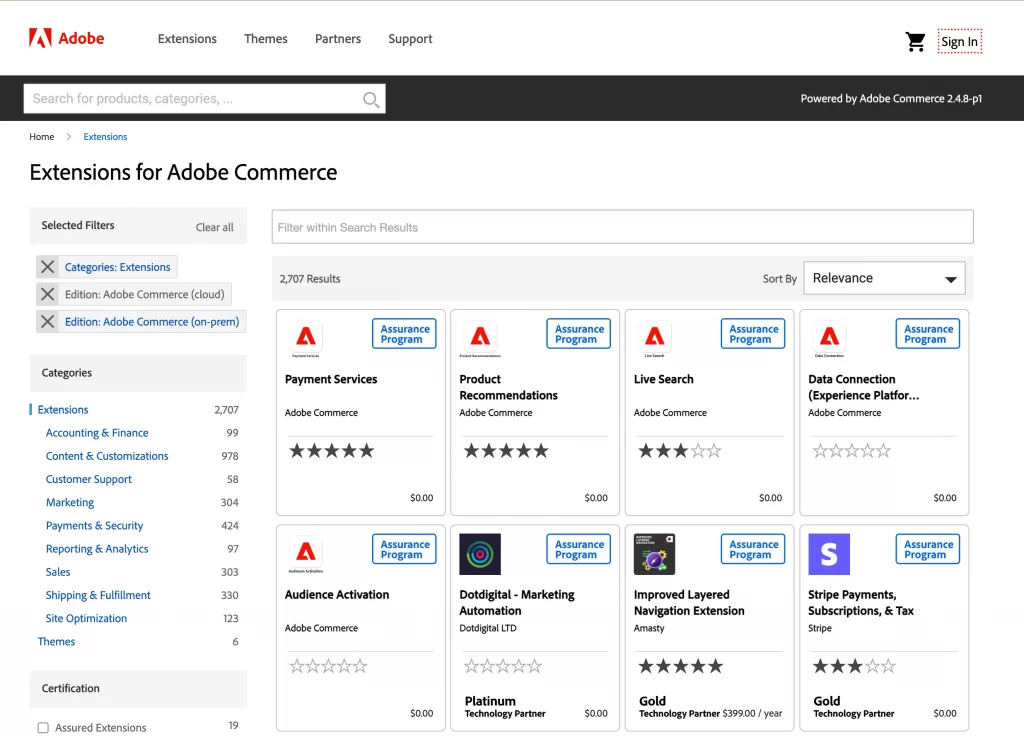
The Adobe Commerce Marketplace offers a wide array of extensions and integrations, covering payments, marketing, shipping, and more. However, adding and maintaining these often requires developer involvement. Integrations with Adobe’s own Experience Cloud products and other enterprise tools are powerful but typically need more technical setup than most Shopify Plus integrations.
8. AI and personalization
Quick verdict:
It’s a tie. Both Shopify Plus and Magento Enterprise have stepped up their AI and personalization game, offering enterprise-grade tools to help brands boost conversion rates and deliver tailored shopping experiences.
Shopify Plus offers a range of AI-powered tools and automation features that can be implemented with little to no coding. From product recommendations and dynamic search to personalized marketing flows, you can quickly enhance customer experiences using Shopify’s app ecosystem and built-in tools like Shopify Flow.
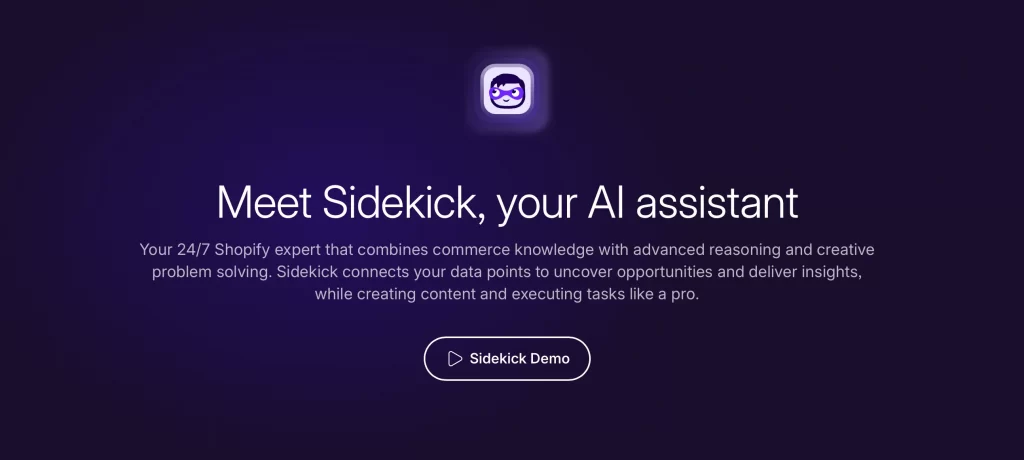
As Shopify continues to roll out more native AI enhancements, such as Sidekick, even non-technical teams can benefit from enterprise-grade personalization.
Adobe Commerce’s AI is powered by Adobe Sensei and is deeply integrated across merchandising, customer segmentation, and product recommendations.
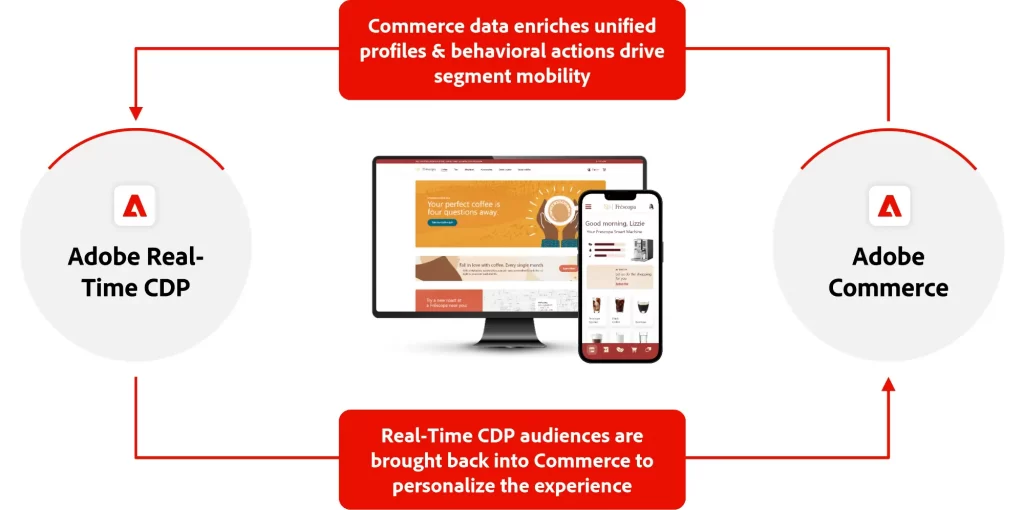
The Adobe Commerce Optimizer even includes generative AI for personalized product discovery and content experiences, though this requires setup by trained teams or partners.
9. Marketing tools and features
Quick verdict:
Shopify Plus stands out for user-friendly, integrated marketing tools that help teams move fast.
Shopify Plus includes a suite of built-in marketing features, such as automated abandoned cart emails, discount and promotion management, and customer segmentation, directly within the admin.
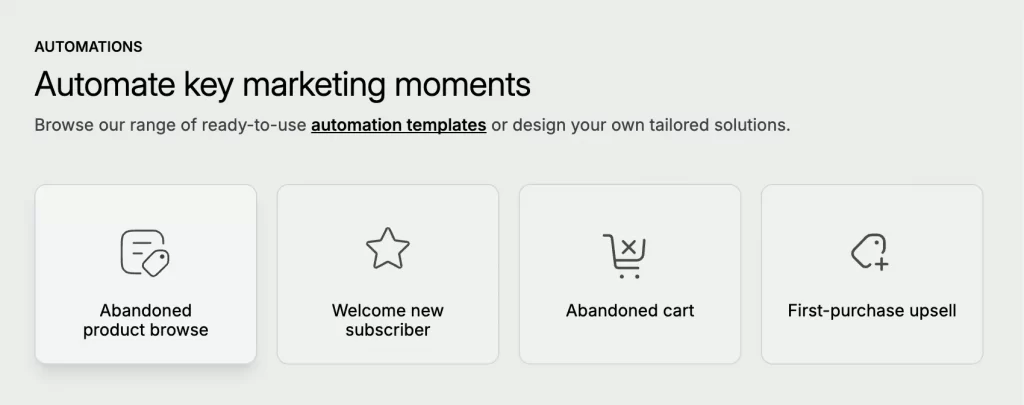
Its app ecosystem lets you add loyalty, referral, pop-up, and review tools in just a few clicks, and popular integrations with platforms like Klaviyo, Mailchimp, and Google Shopping are simple to set up.
Adobe Commerce provides more advanced marketing capabilities, including rule-based promotions, dynamic content targeting, and highly segmented customer journeys. Multi-brand, region-specific, or B2B marketing campaigns are all possible from a single backend.
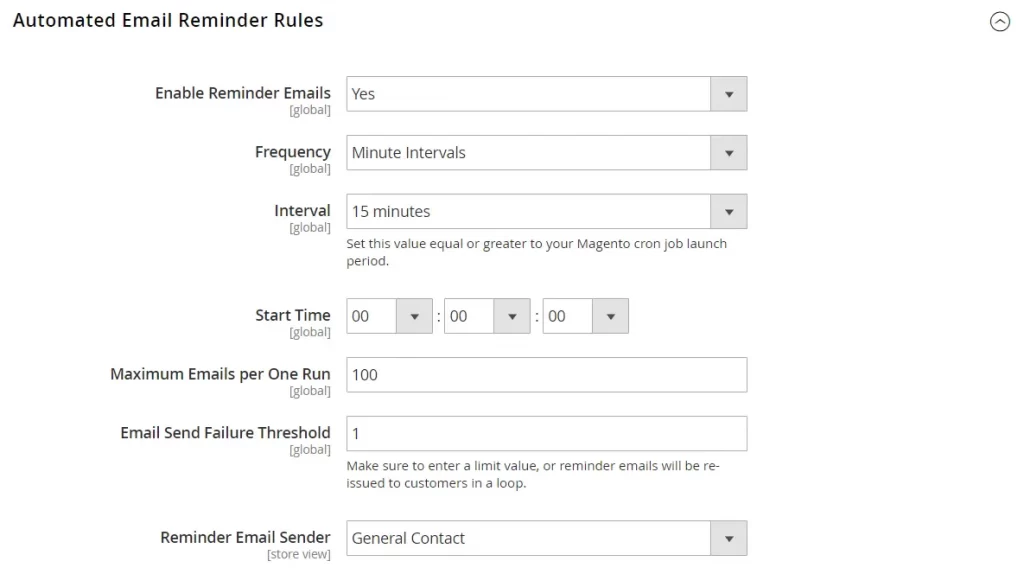
Adobe Commerce’s personalization and experience orchestration tools benefit from integration with Adobe Experience Manager, making them powerful for enterprise campaigns, but this assumes that marketing and development teams can work closely together.
10. Payment options and checkout experience
Quick verdict:
Shopify Plus wins for ease, speed, and built-in payment optimization, while Magento Enterprise offers more flexibility for complex or region-specific payment needs, if you have the technical resources..
Shopify Plus includes Shopify Payments, which eliminates third-party transaction fees and supports major payment methods like Shop Pay, Apple Pay, Google Pay, and Buy Now, Pay Later (BNPL) right out of the box. The checkout experience is streamlined and mobile-first, with Shop Pay reducing friction and boosting conversions with pre-filled customer info and fast loading times.
Shopify Payments is currently supported in 23+ countries, including United States, United Kingdom, Canada, Australia, France, Japan, Germany …and others.
In these markets, merchants can benefit from:
- 0% Shopify transaction fees
- Automatic fraud prevention and PCI compliance
- Built-in support for local payment methods like iDEAL, Klarna, Bancontact, and EPS
If your country isn’t supported, Shopify Plus still allows integration with 100+ third-party gateways globally, but expect an additional transaction fee (typically 0.15%–0.30%).
Thanks to Shopify Markets and Markets Pro, Shopify Plus simplifies multi-currency, localized checkout, and country-specific tax/payment handling which is ideal for fast-scaling global brands without deep dev resources.
Meanwhile, Magento Enterprise gives you total freedom when it comes to payments. You can integrate any payment provider, whether it’s PayPal, Stripe, Adyen, Alipay, or a regional gateway in LATAM, APAC, or the Middle East. There are no platform-imposed transaction fees, regardless of the processor.
This flexibility makes Adobe Commerce ideal for:
- Markets where Shopify Payments isn’t available
- Highly regional or B2B-specific workflows, such as split payments, credit lines, or invoice-based payments
- Hybrid DTC+B2B models with different checkout flows
However, the trade-off is complexity:
- Integration requires custom development or paid extensions
- Ongoing maintenance, gateway updates, and PCI compliance are your responsibility
- Checkout performance may depend heavily on how well your frontend and gateway logic is built
In short, Adobe Commerce gives you power, but demands effort. For global enterprises with unique transactional flows, it’s a strong fit, provided you have the dev resources to maintain it.
11. SEO and performance
Quick verdict:
Shopify Plus offers fast load times and best-practice SEO features by default, making it easy for most brands to achieve strong organic visibility and site speed without extra effort.
With Shopify Plus, performance is a given; cloud infrastructure, built-in CDN, and automatic platform optimizations ensure your store loads quickly and reliably, even during high-traffic periods.
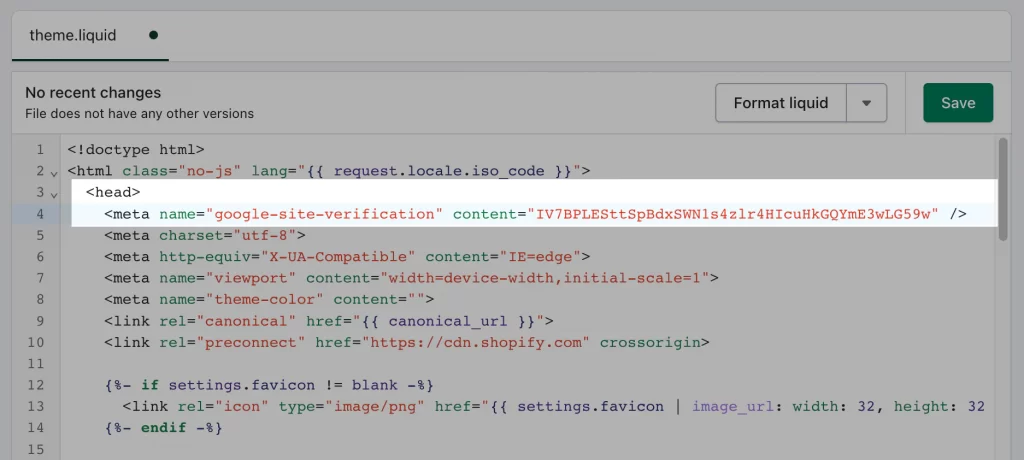
Shopify Plus covers all the SEO basics: mobile-friendly themes, customizable meta tags, alt text, sitemaps, and structured data. You can manage most SEO essentials from the admin, with minimal developer input.
Adobe Commerce is designed for those who want maximum control and flexibility. You can fine-tune every SEO detail, from custom URL structures and canonical tags to advanced schema markup, robots.txt, and server-level performance adjustments. This is ideal for brands with large catalogs, complex site architectures, or aggressive international SEO goals.

However, these advanced features require developer support and ongoing technical oversight to fully optimize.
12. Support and maintenance
Quick verdict:
It’s a tie. Both Shopify Plus vs Magento Enterprise (Adobe Commerce) offer enterprise-grade support, featuring dedicated account managers, priority help channels, and comprehensive onboarding resources.
With Shopify Plus, your subscription covers platform updates, patches, and day-to-day maintenance, all managed by Shopify’s team. This means you rarely need to allocate extra budget or internal resources just to keep your store secure and running smoothly. Support is proactive and typically very responsive, allowing your team to stay focused on growth and operations.
Adobe Commerce also provides enterprise support and dedicated account management. However, your own team or agency remains responsible for applying patches, managing updates, and handling custom development issues. As your store becomes more customized or complex, the need for ongoing developer involvement and associated costs can increase. These extra operational investments can make maintenance less predictable and sometimes more expensive over time.
Shopify Plus vs Magento Enterprise: Which Platform Is Right for You?
Choose Shopify Plus if you:
- Want a platform that’s fast to launch and easy to manage
- Prefer predictable, subscription-based pricing and minimal IT overhead
- Need a fully hosted, secure solution with automatic updates
- Have a DTC, B2C, or straightforward B2B business model focused on rapid growth
- Value empowering your non-technical team to handle most day-to-day operations
- Plan to expand into new markets without getting bogged down in technical details
Choose Magento Enterprise (Adobe Commerce) if you:
- Require deep customization or highly complex integrations that are not possible on SaaS platforms
- Have an in-house development team or work closely with a specialized ecommerce agency
- Operate multi-brand, multi-language, or large-scale B2B catalogs with unique workflows
- Need advanced features like negotiated pricing, custom purchasing processes, or specialized merchandising logic
- Are willing to invest in ongoing technical resources for setup, maintenance, and optimization
So, as you can see, Shopify Plus is the best fit for most scaling brands that want lower risk and faster growth without the operational complexity. Magento Enterprise is ideal for organizations with highly specialized needs and the technical bandwidth to support them.
Shopify Plus and Magento Enterprise: Considerations for Migration
If you’re thinking about switching platforms, it’s critical to weigh the practicalities of migration, both the benefits and the potential challenges. Here’s what to consider depending on your direction:
Migrating from Magento Enterprise to Shopify Plus
- Moving to Shopify Plus typically means predictable subscription pricing and eliminates the need for separate hosting, patching, or server management expenses.
- Shopify Plus migrations can be completed more quickly, and ongoing maintenance is dramatically reduced. Your team can focus on growth instead of infrastructure.
- Shopify Plus removes the need for in-house server admins or complex deployment processes. Updates and security are handled by Shopify.
- Shopify Plus makes it straightforward to set up new storefronts for different regions, currencies, and languages without requiring extensive technical work.
Migrating from Shopify Plus to Magento Enterprise (Adobe Commerce)
- If your business has outgrown the boundaries of SaaS, needing deeply custom workflows, advanced B2B modules, or unique integrations, Magento Enterprise offers nearly limitless flexibility.
- Magento’s architecture is designed for large product catalogs, multi-brand or multi-store operations, and highly specific B2B or regional requirements.
- You should be ready to invest in a skilled development team or a specialized agency. The benefits of customization and control come with a need for continuous technical management, updates, and optimization.
Before migrating in either direction, you should assess your current pain points, your team’s technical strengths, and your long-term business strategy. Successful migrations are about setting your business up for sustainable growth on a platform that suits your needs.
Ready to plan your migration or would like to discuss the pros and cons? LitOS specializes in seamless Shopify Plus migrations and custom builds for ambitious brands.
Explore other’s success stories with LitOS: Porfolio – LitOS.
Shopify Plus vs Magento Enterprise: FAQs
What is better, Magento or Shopify?
There’s no universal answer; it depends on your business needs. Shopify Plus is ideal for brands seeking a fully managed, user-friendly solution that scales quickly with minimal technical overhead. Magento Enterprise (Adobe Commerce) is better suited for businesses that require deep customization, advanced B2B capabilities, or highly complex integrations, and are willing to invest in ongoing technical resources.
What is the difference between Shopify Plus and Magento Enterprise?
Shopify Plus is a SaaS, fully hosted platform with predictable pricing, built for speed, ease, and lower maintenance. Magento Enterprise (Adobe Commerce) is an enterprise-grade platform offering either self-hosted or Adobe-managed cloud options, built for businesses that need advanced customization, technical flexibility, and are comfortable managing their own infrastructure.
What are the limitations of Shopify Plus?
Shopify Plus doesn’t allow for deep, code-level backend customization like Magento. There are some platform guardrails around checkout and server-side logic, and while its app ecosystem is vast, extremely unique business requirements may need workarounds or custom app development.
What does Magento Enterprise offer that Shopify Plus doesn’t?
Magento Enterprise offers full access to the codebase, allowing for nearly unlimited customization of features, integrations, and workflows. It’s ideal for brands with very complex product catalogs, advanced B2B requirements, and custom processes that go beyond what Shopify Plus natively supports.
Is Magento Enterprise still open-source?
No, Magento Enterprise (now called Adobe Commerce) is not open-source in the way Magento Open Source is. While Adobe Commerce is built on top of the Magento Open Source codebase and you do get source code access as a paying customer, it operates under a commercial license and includes proprietary features and modules that are not open source.
Can both Shopify Plus and Magento Enterprise handle B2B and DTC hybrid models?
Yes, both platforms support B2B and DTC selling from the same backend. Shopify Plus now offers native B2B tools suitable for most growing brands, while Adobe Commerce provides advanced B2B modules and deeper customization for complex requirements.
Final Verdict
If you’ve managed or scaled an eCommerce business, you know that the real test of a platform, whether Shopify Plus or Magento Enterprise, is in how quickly your team can adapt, how easily you can launch new markets, and how reliably your tech stack keeps up with your ambitions.
For most growth-focused brands, Shopify Plus removes the barriers: no more server issues, no more scrambling for security patches, and no more waiting months to roll out a new campaign. Your team can focus on delivering great customer experiences and driving revenue, not wrangling code or chasing down IT emergencies.
Magento Enterprise (Adobe Commerce) is also powerful, but in the real world, it’s best suited to companies with highly specialized requirements and the technical depth to match. If you have unique workflows, complex B2B operations, or a legacy catalog that simply can’t be simplified, Adobe Commerce can deliver, but expect to invest in ongoing development and support.
Let’s build what’s next!
At LitOS, we help ambitious brands grow smarter on Shopify – with better tech, sharper strategy, and hands-on support that actually drives results. From migration to growth, we make the process seamless and built to scale.
Have a project in mind? Contact us now →

